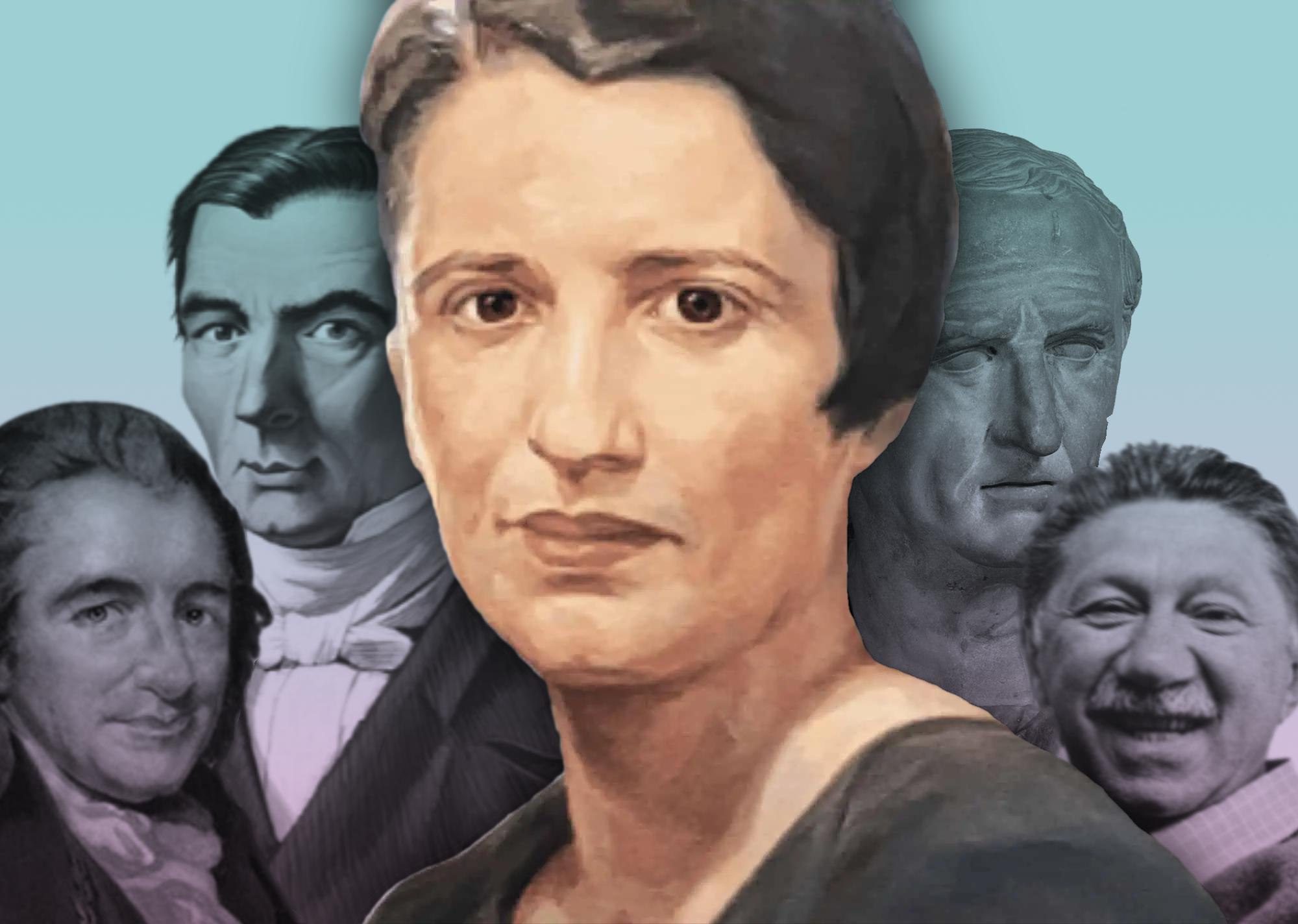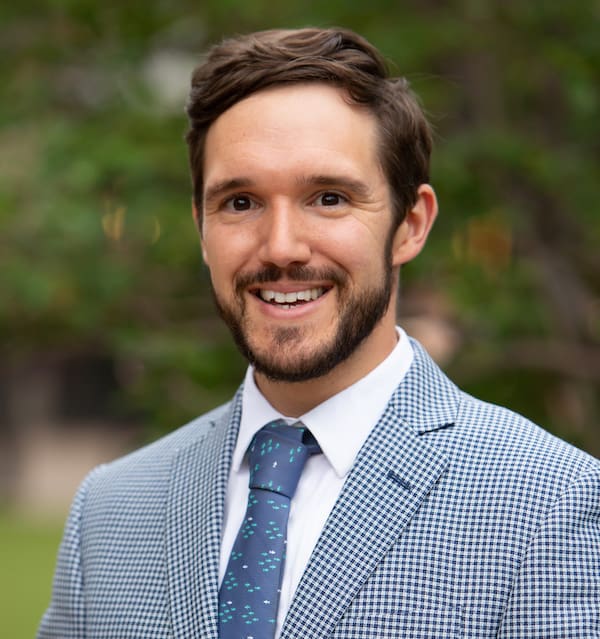
Ayn Rand Integrations: Cicero, Paine, Bastiat, Maslow
with multiple instructors
6 hours total | 4 sessions, beginning November 13, 2023
Deepen your understanding of Ayn Rand’s Objectivism by seeing how it integrates and contrasts with the ideas of four other world-changing thinkers.
Ayn Rand created a rational, observation-based “philosophy for living on earth.” Studying how her ideas integrate with—and differ from—those of other great thinkers will help you leverage the value of each toward clearer thinking and better living. In this course, you’ll examine some of Rand’s ideas alongside those of Cicero, Thomas Paine, Frédéric Bastiat, and Abraham Maslow.
Famed Roman statesman, philosopher, and speaker Marcus Tullius Cicero was perhaps the first person to describe what may properly be called individual rights. His conception of them—as objective principles, derived from human nature rather than government dictate or majority will—inspired Enlightenment thinkers such as Hugo Grotius and John Locke. Their views on rights set the stage for entire revolutions, and later thinkers further grounded and clarified the principle of rights—most notably Rand. Join OSI fellow Angel Walker-Werth to integrate and contrast Rand’s and Cicero’s views on rights, and explore the consequences of those conceptions.
Benjamin Franklin once told Thomas Paine that he was “more responsible than any other living person on this continent for the creation of . . . the United States of America.” Paine’s passionate belief in men’s rights to live freely—and overthrow any government that violates those rights—motivated him to advocate American independence in his enormously influential Common Sense. He later did the same for the French Revolution in Rights of Man. He then turned his attention to organized religion in Age of Reason, penned in a Paris jail cell at the height of the Reign of Terror. Paine was one of the most influential advocates of reason and liberty during the Enlightenment, and his ideas gave rise to what Rand later called “the greatest, the noblest and, in its original founding principles, the only moral country in the history of the world.” OSI fellow Thomas Walker-Werth will contrast Paine’s and Rand’s ideas on such topics as ethics, politics, and the nature of reality.
French economist Frédéric Bastiat was not only an early proponent of laissez-faire economics, but also one of the first thinkers to attempt to formulate a systematic social-political basis for it. In the 20th century, Rand provided the most robust and consistent philosophic basis for laissez-faire capitalism. History professor Eric Daniels will compare how these thinkers approached these questions and how Rand’s thought fits into the broad classical liberal tradition represented by Bastiat.
Trained in the behaviorist school of psychology, Abraham Maslow came to largely reject both the behaviorist and Freudian theories, pioneering a “third force” in the field: humanistic psychology. Whereas others focused almost exclusively on curing psychological illness, Maslow studied the traits of the most psychologically healthy people—illuminating how they thought and lived so that others might learn from their examples. From his formulation of a hierarchy of human needs to his views on self-actualization and the need for a “scientific value system,” Maslow’s thought warrants close examination and features rich parallels with Rand’s ideas. Explore these and more alongside OSI fellow Jon Hersey.
Meet Your Instructors

Angelica Walker-Werth
Angelica is a fellow at Objective Standard Institute, an assistant editor and writer for The Objective Standard, and an Ayn Rand Fellow with Foundation for Economic Education’s Hazlitt Project. Her roles at OSI include managing the internship and Active-Mind scholarship programs, course administration and development, and editing On Solid Ground. She holds bachelor’s degrees in horticulture and Spanish from Clemson University and enjoys reading, playing the piano, ballet, and traveling. To see more of her work, visit www.walker-werth.com.

Thomas Walker-Werth

Eric Daniels
Eric Daniels holds a Ph.D. in American history from the University of Wisconsin at Madison. He has taught history, political science, and economics at Duke University, Georgetown University, and is currently the Assistant Director of the Clemson Institute for the Study of Capitalism at Clemson University. In addition to his contributions to The Objective Standard, he has published on the history of monopolies, American individualism, and economic freedom.

Jon Hersey
Jon Hersey (@revivingreason) is managing editor of The Objective Standard and holds fellowships at Foundation for Economic Education, where he writes in defense of freedom, and at Objective Standard Institute, where he teaches “How to Write Powerfully in Defense of Liberty.” He hosts the podcast “Philosophy for Flourishing.” He’s on a mission to identify and apply the principles of human flourishing. Get his ebook on writing in defense of liberty here, and join his mailing list at JonHersey.com.

Course & Session Schedule
- Cicero, Nov 13, 2023, 9:30–11am PT
- Paine, Nov 20, 2023, 9:30–11am PT
- Bastiat, Nov 27, 2023, 9:30–11am PT
- Maslow, Dec 4, 2023, 9:30–11am PT
How the Course Works
This course is interactive and discussion-driven, so enrollment is limited. Register early to secure your spot.
The course is held live on a video conferencing app called Zoom, which you can download for free here. Sessions are video recorded, so if you miss a session (or want to review), you can watch the recording.
The course is 6 hours long, consisting of 4 sessions of 1.5 hours each.
Course handouts and supplementary materials are delivered via email. Course participants are invited to an exclusive OSI Courses group on Facebook, where they can post questions and engage in discussions with the instructor and other participants.
Have a question that wasn’t answered here? Read our FAQ or email us at [email protected].
By enrolling, you agree to OSI’s Course Terms and Conditions.


